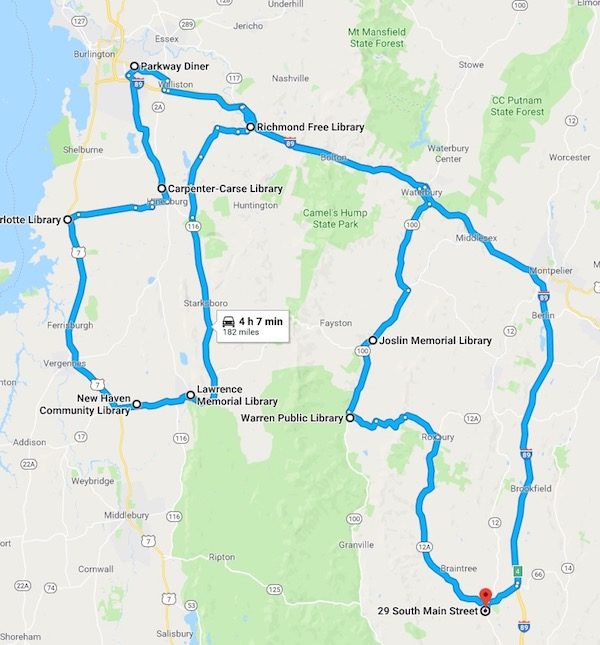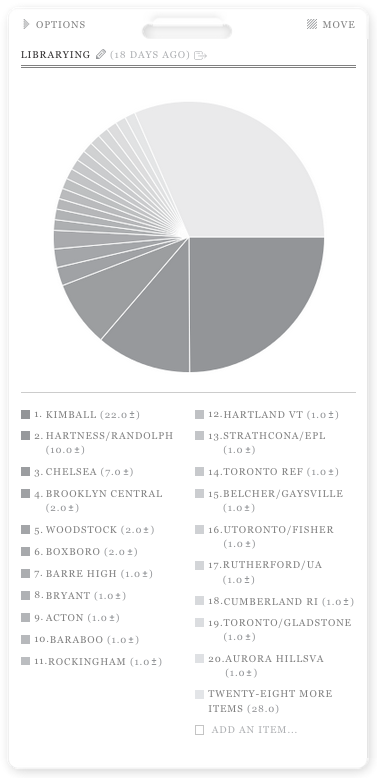
Visiting libraries is great. Neat things to learn about communities, comfy places to sit, clean bathrooms. I went to fewer libraries this year, but made more visits overall. Not chipping away at my VT 183 Project that quickly. This year I went to 27 libraries in six states. One hundred and eleven visits total.
Previous years: 2018, 2017, 2016, 2015, 2014, 2013, 2012, 2011, 2010, 2009 and some reviews from 2003.
Libraries I went to a lot
- Kimball (VT) – my local
- Rochester (VT) – another almost-local where I did drop-in time
- Hartness/VTC (VT) – my local academic
- Westport (MA) – summer local, wasn’t there as much this year
- Tiverton (RI) – summer better local
- Windsor (VT) – did some library shifts here
The rest
- Howe/Hanover (NH) – always a fave wen I’m in Hanover
- Peacham (VT) – cool taxidermy and nice people
- Dorchester County PL (MD) – functional and a lovely building
- Grafton (VT) – big book sale upstairs, lots of comfy chairs
- Howe/UVM (VT) – renamed and still great, better possibly
- Carney/Dartmouth (MA)- summer fave
- Wicomico PL (MD) – simple and sturdy, a lot of great exhibits
- Norwich U (VT) – aggravating meeting, lovely library
- Shelburne (VT) – checking on the new reno, it’s great!
- Lamont/Harvard (MA) – rainy day, cozy library
- Montpelier (VT) – good place to met people
- Dartmouth/Baker-Berry (NH) – good place to hide from the rain, hoppin
- Dartmouth/Rauner (NH) – great art and wifi
- Houghton/Harvard (MA) – space exhibit and good friends
- Fall River (MA) – always impressed with what they can do in this space
- Norwich (VT)
- Hancock (VT) – so tiny, so cute
- UVM Spec Coll (VT) – great tour of the new place
- Seminole Heights (FL) – good place to chill out after a long walk
- Saunders PL (FL) – gave a talk here
- Widener/Harvard (MA) – hiding in the stacks here is one of my happy places




